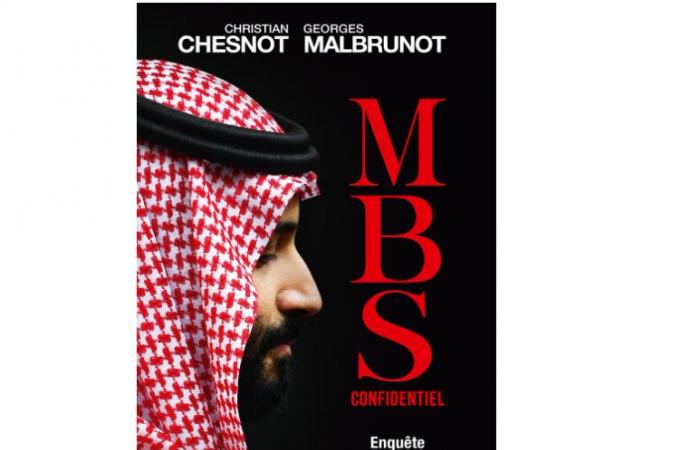For a long time, the Saudi kingdom was a colossus with feet of clay, an energy giant but a political dwarf. His diplomacy? Non-existent. It is true that since the famous Quincy pact, signed on the eponymous American ship, on February 14, 1945, between President Franklin Roosevelt and King Ibn Saud, its foreign policy has long been limited to supplying the USA with oil, while that they ensured his safety.
Black gold has since flowed under the bridges. It is not inexhaustible and the American umbrella is no longer quite what it once was. The ruling generations, too, have changed.
Hence this fascinating book, signed by journalists from Figaro and of France InterGeorges Malbrunot and Christian Chesnot, specialists in this complex East by nature, dedicated to Mohammed ben Salman, reigning prince while waiting for his father, who was ill, to give him full powers. Better known by the acronym “MBS”, this ambitious young man therefore has great ambitions for his country.
The political and religious equation
And what we must first understand, in the Saudi kingdom, is their Muslim leadership. From a historical point of view, they are the guardians of Islamic holy places. On the other, religious, they have long been the main vectors of Wahhabism in the world. What is it about? A return-to-basics Islam reminiscent of a certain American Protestantism with an evangelical twist: the same puritanism, the same fantasized vision of an original purity, the same proselytism and the same adoration of money.
Only, here it is, and this, always about money and brand image: Wahhabism ends up costing more than it brings in; especially since the attacks of September 11, 2001. There, to the joint desolation of Riyadh and Washington, the evidence became clear: the majority of terrorists were of Saudi nationality. Worse: the promotion of this rigorous Islam has not protected the kingdom from these terrorists who consider it corrupt, since they have pledged allegiance to the USA.
Between tradition and modernity
It is this delicate situation that our prince inherits today. How to wring the neck of the past without insulting the future? How can we open up to Western technologies while avoiding adopting the most visible forms of its decadence? In short, Mohammed ben Salman, according to our authors, is condemned to tack. Because, more important than the Quincy pact, there is that of 1744: “This political-religious pact concluded between a warlord, Mohammed Ibn Saud, [l’ancêtre de la dynastie régnante, NDLR] and a religious preacher, Mohammed Abdal-Wahhab. This alliance of the Koran and the sword constituted the immutable basis of governance in Saudi Arabia for centuries. »
So, MBS must decide while remaining in a certain form of continuity: “We’re not going to spend the next twenty-five years wondering whether music is halal or not. We must return to traditional Islam. » Or the one, pre-Wahhabi, where music was part of everyday life.
According to the authors of the book, these reforms would be well received by urban populations but would leave those in the countryside skeptical, to say the least. A situation which is reminiscent of that of its powerful Iranian neighbor; where the contested veil in the Iran of the cities is still held as pride in that of the fields. Regarding this Shiite rival, MBS quickly understood that relations with Tehran would have to be calmed. This was done on March 10, 2023, but under Chinese and not American aegis, thus giving a fairly good idea of the new balance of power in the region. Just as he also understood that he would have to formalize the discreet relations maintained with Israel for decades. This was also outlined, in September 2023, through President Donald Trump.
A complex character to say the least
So much for the Cartesian and Western side of the prince. For the rest, he remains a slightly sanguine Oriental. The proof is the assassination, as sordid as it is incredible, of one of his opponents, Jamal Kashoggi, at the Saudi consulate in Istanbul, on October 2, 2018, in which the United Nations special rapporteur saw in 2019 a very probable “state crime”. Without forgetting the kidnapping of all his potential competitors from the royal family who had made their fortune in a more or less legal manner, at the Ritz-Carlton in Riyadh, on November 4, 2017. Some were finally released after having paid fines amounting to billion dollars. A sort of clean-hands operation in Bedouin fashion… Then, the erratic military operation carried out in Yemen, in a conflict that never stopped getting bogged down.
In short, Mohammed bin Salman is a young man in a hurry, aware of the delay that he must make up for his country. A state of mind that the authors summarize as follows: “Today, uninhibited, the Saudis have had enough of being given moral lessons morning and evening. No offense to Westerners, MBS’s objective is not to transform his kingdom into a liberal democracy. To succeed in his revolution, he is convinced that he must hold the reins of power with a firm hand, without weakness or hesitation, even if it means appearing as an autocrat. » All this is worth pondering.
Print, save or send this article






